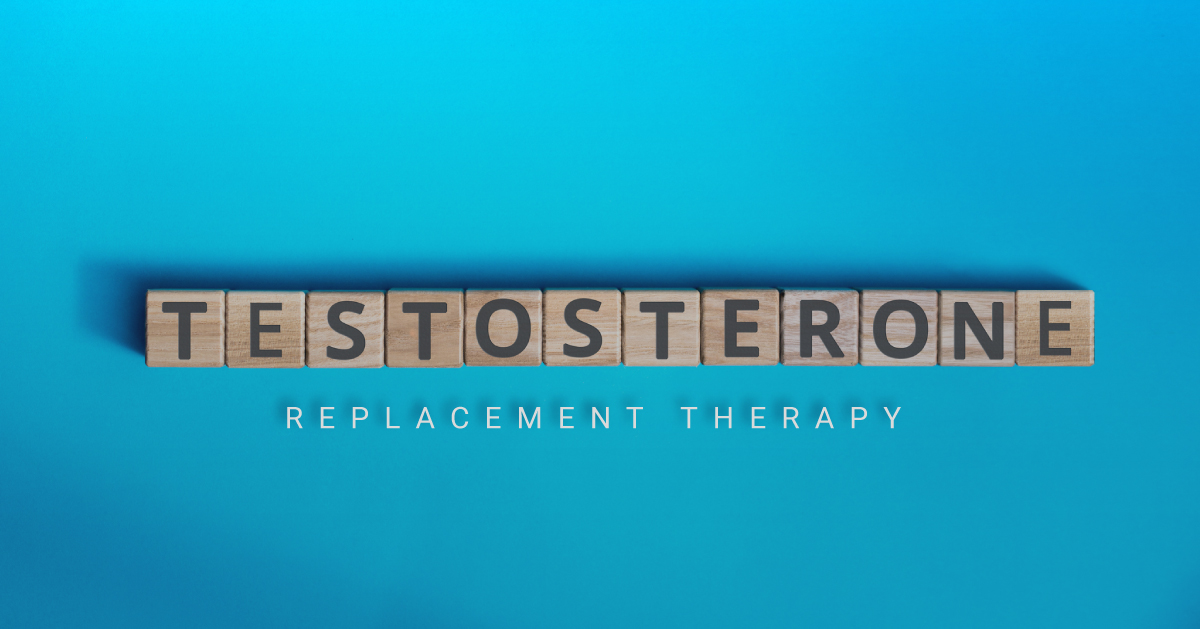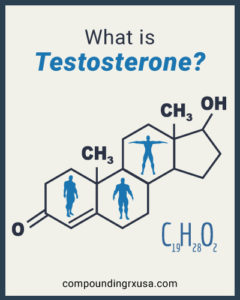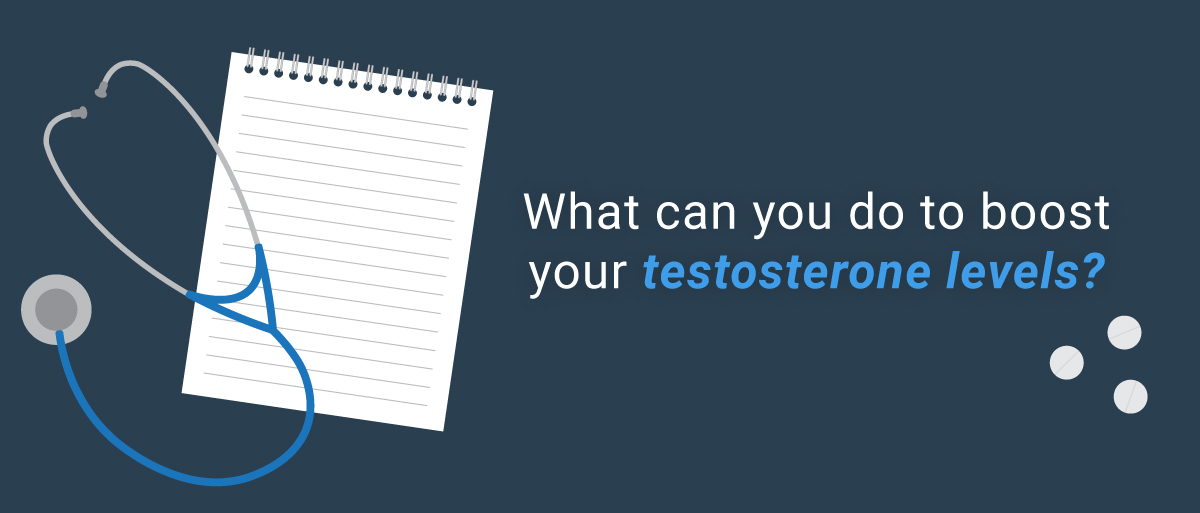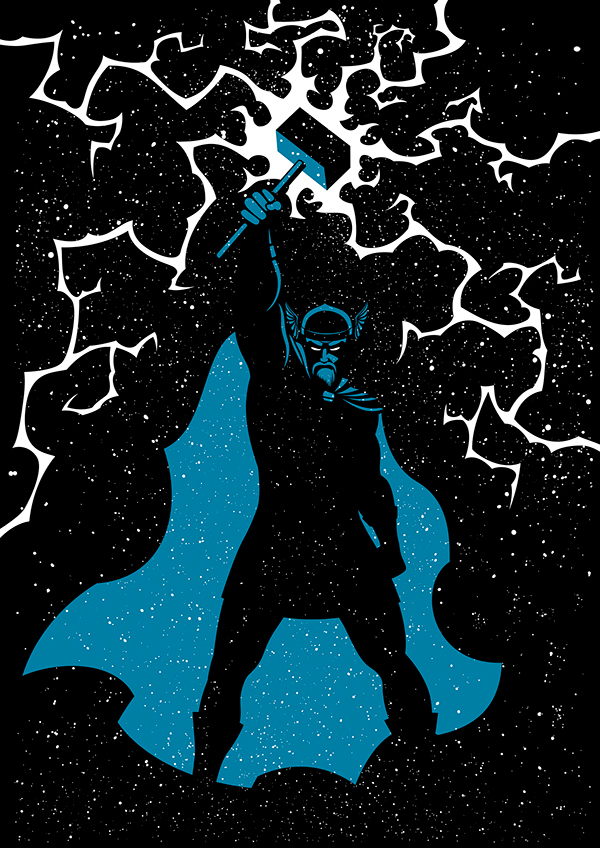
How Testosterone Replacement Therapy for Men Can Transform Your Life
Originally posted on https://compoundingrxusa.com/blog/how-testosterone-replacement-therapy-for-men-can-transform-your-life/
While feeling a little more tired and a little less amorous may be normal signs of aging, they may also be indicative of a testosterone deficiency. If you’re a man experiencing any of these symptoms, testosterone replacement therapy can be a great option for you. Whether you are suffering from age-related lower testosterone levels or there’s a more serious reason for the deficiency, there are treatments to help you return to a more normal and active sexual life.
What Is Testosterone?

Before we dive into testosterone replacement therapy, or TRT, let’s start with the basics – what is testosterone and how does it work in the body? Testosterone is a hormone produced primarily in the testicles, however; women also produce some level of this hormone – just in smaller degrees. It helps maintain male bone density, fat distribution, facial and body hair growth, red blood cell production, sperm production, and sex drive.
The term “TRT” is what physicians prescribe to help those men overcome low testosterone. Though men have a wide range of testosterone levels, doctors suggest the range for men is wide, with some men normalizing at 270 and others experiences levels as high as 1070 ng/dL of the hormone. Most men average at about 679 ng/dL, but men who have testosterone levels between 400-600 ng/dL have healthy and balanced levels, at least from a medical perspective. Men who have levels below 400 or over 600 are out of balance. Most men’s testosterone levels peak at about 20 years old. From there, levels slowly decline.
Overcoming the Stigma of Low-T
The stigma of low testosterone has made it difficult for men to talk about this health problem. Because people often equate sexual drive with masculinity, men may not even want to admit they have a problem to themselves. Talking to a doctor about the issue can feel like an impossible feat. Instead of seeing low-T as a medical condition, many see it as an assault on their manhood or virility. It’s this kind of thinking that can cause men to suffer long-term for an easily treatable condition.
Adding to this problem is the fact that only recently has the issue of low testosterone been thought of in terms of preventative care. Many men don’t seek treatment for their lower levels of testosterone because other diseases, like diabetes, tend to mask it. In fact, as many as 13 million men suffer from low-T, but only about 10 percent of those seek treatment.
The truth is, if you’re a man suffering from erectile dysfunction, low energy, and a decrease in sex drive, you should have an honest conversation with your doctor about what could be happening. These symptoms could suggest a decrease in testosterone that comes with age – which is very treatable – or other more serious health problems like heart disease, diabetes, or high blood pressure.
Though it can be a difficult conversation, having a frank discussion with your doctor is a crucial first step.
Testosterone and Aging
As you get older, your testosterone levels will naturally decline starting around age 30 or 40. Testosterone levels peak in adolescence and then begin to drop off by about one percent a year. This is a normal part of the aging process, though it is a myth that lower testosterone levels cause all symptoms of aging.

Though age is one of the most common factors, low testosterone can have many causes. A few other factors could be:
- Trauma or injury to the testes
- Too much iron in the body (hemochromatosis)
- Pituitary gland tumors
- Certain medications (opioids or cancer treatment)
- Obesity
- Thyroid issues
- Undescended testes
- Overproduction of estrogen
Though these are the most common causes of low-T, this list isn’t exhaustive. Even an early life injury to the head can affect testosterone levels later in life.
Hypogonadism
One of the primary conditions TRT treats is male hypogonadism. This is a condition in which the body doesn’t produce enough testosterone. This can manifest at any point in life with resulting symptoms dependent on when the condition emerges.
Men suffer from one of two types of hypogonadism:
- Primary hypogonadism. The gonads get signals from the brain to produce testosterone, but they are unable to produce the hormone.
- Central hypogonadism (secondary). The hypothalamus or pituitary gland isn’t giving the signals to the gonads necessary for producing testosterone.
TRT treats both types of hypogonadism.
Treatment for Hypogonadism
Some hypogonadism hormone therapy for men will be recommended based on the age of the male affected.
-
- If hypogonadism emerges in utero, the external sex organs may not develop in the usual way. There may be female genitals, intersex genitals, or underdeveloped male genitals because of this condition.
- In puberty, hypogonadism may result in some intersex physical characteristics. The person’s voice may not drop as is common for most boys who go through puberty, and they may not see the usual development of muscle mass. There may be impaired growth of body hair, facial hair, penis, and testicles, and their arms, legs, and breasts may grow more than is typical for men.
- In adults, hypogonadism can cause a variety of symptoms. The first symptom most men with low-T notice is a drop in their sex drive, but that’s not the only effect of this issue.Other symptoms of low-T include:
-
-
- Depression/moodiness
- Less body hair
- Hot flashes
- Concentration problems
- Erectile dysfunction
- Loss of muscle
- Development of breast tissue
-
If you’re experiencing a lower sex drive along with any of the above symptoms, talk with your physician about TRT. If your testosterone levels are below normal for your age, medications are available that can help boost those levels and help you get back to a more energetic love life.
If you begin to experience any of the symptoms to the extreme, call your physician. It’s possible your testosterone levels are dropping faster than normal. Enlarged breast tissue, erectile dysfunction, or decreased beard and body hair growth are signs of a serious problem that needs to be addressed with a healthcare practitioner. Though these are symptoms of low-T, they could also indicate a more serious medical issue.
Boost Your Testosterone Levels
Not all low testosterone is hypogonadism. As men age, testosterone levels naturally decrease. But there are a few natural ways to boost testosterone levels without health risks.

Decrease fatigue and increase your sex drive, boost well-being and testosterone by:
- Weight-lifting and aerobic exercising. People who exercise regularly have higher levels of testosterone. Sprinting has been proven to boost testosterone in both men and women. Resistance training also has been proven effective for increasing testosterone.
- Healthy eating. Food has a direct effect on all your hormone levels. Some foods that naturally boost testosterone include:
- Tuna
- Egg yolks
- Milk
- Oysters
- Beef
- Beans
While these foods can do a lot to prevent low-T, having an all-around balanced diet full of fruits, vegetables, and lean meats will organically improve your well-being, including your hormonal levels.
- Reduce stress. An increase in the stress hormone, cortisol, causes a decrease in testosterone. When a person is in “flight or fight” mode, a natural reaction to stress, it only uses what it needs to survive. And because testosterone production isn’t necessary for survival, it stops producing it to concentrate on other things. To better manage stress triggers, add yoga or breathing exercises to your everyday routine.
- Consider supplements. Certain vitamins and minerals can boost testosterone along with your immune system. Vitamin D and zinc are great supplements that can do a lot for your body and help raise testosterone levels.
- Get adequate sleep. Most Americans don’t get their eight hours, and it could affect their sex lives as well as their ability to concentrate. Not enough sleep decreases testosterone. Inadequate sleep increases stress and decreases healthy eating habits, both of which affect testosterone levels. However, lack of sleep alone can tank testosterone levels. In one study of healthy men who didn’t have low-T, just one week of poor sleep lowered testosterone levels by 15 percent.
Though all these tips can lead to better overall health, sometimes no matter what positive life changes you make, it’s not enough to overcome the deficiency in your body. However, low-T and the effects of aging don’t have to mean giving up on your livelihood. Testosterone therapy for men, along with these healthy life choices, can transform your vitality and help you feel rejuvenated. TRT can help you get a new lease on life.
How TRT Works
The idea of TRT is fairly simple: your body has a testosterone deficiency, so TRT replaces that deficit. Though the treatment may be the same, what causes the deficit may be very different. Some will have suffered low-T levels their entire lives, while others may be experiencing it for the first time.

Testosterone is an important hormone in the function of the male body. It’s the substance that signals more hair growth, the development of more muscles, activating sex drive in men. When levels are too low, most men become aware of it due to their lower sex drive or even performance issues. When those levels increase, it normalizes bodily performance again and rebalances the body to work as it did when producing testosterone organically.
It may take some trial and error to figure out the optimal testosterone level and administration method that works best for you. Be honest with your doctor about all your symptoms to ensure your prescriptions are formulated in such a way that makes dosing easy and includes potential supplements.
Some men have concurring conditions that necessitate a specialized prescription for treatment. Others aren’t able to take pills or have a reaction to the other components in a traditionally formulated tablet. Our compounding pharmacy can provide testosterone therapy options.
Testosterone Supplements
There are several different administration methods for testosterone supplements. Consider the following methods to determine which is right for you.
- Topical gels/creams. One of the most common is a topical gel that you rub on your chest and shoulders every day. About 85 percent of men absorb this gel well and get good results from using it. The skin directly absorbs the testosterone. Depending on the formulation, some gels are applied just inside the nose.
- Skin patches. These transdermal patches are worn on the upper body, usually the arm and applied once a day. Some men do suffer from skin reactions. If you have sensitive skin, consider another method. There are patches you can put on your scrotum that are less irritating, but it does mean you have to shave your scrotum regularly.
- Mouth patches. This medication looks like a tablet but, instead of swallowing, patients stick it to their upper gum. It’s applied twice daily and offers a continual testosterone release into the bloodstream through mouth tissues.
- Oral medications. While this may sound like a go-to treatment option for TRT, some research suggests that it can negatively affect the liver and can even cause severe liver toxicity. Depending on your age and other medications you are taking, drugs that affect the liver may not be the best option.
- Injections. Testosterone shots work well for the majority of men on TRT. One of the biggest perks of these injections is that they are inexpensive and accessible for almost everyone. These are one of the most common requests for compounding pharmacies and one of our most popular products. Your doctor will give you an injected dose once every two to ten weeks, depending on your particular needs, and in between appointments you don’t have to worry about remembering your meds – just enjoy the benefits.
Most men feel the effects of testosterone therapy fairly quickly. Sex drive will improve, and most men find their erectile dysfunction symptoms go away. Though you won’t see it, your sperm count will also increase. Most men report that they have more energy and experience better mood overall after taking TRT.
Monitoring
Before you begin treatment, your doctor will test your testosterone levels twice to establish a baseline. This will involve a simple blood test. Because it may take some time to find a method that will work well for you, your doctor will need to monitor you during the beginning of your TRT. There is a broad spectrum of treatment for low-T, so your doctor will be able to assess the body’s reaction to the first doses to determine if less or more is necessary. Too much testosterone can cause risks. Higher testosterone levels in the body have been associated with an enlarged prostate and growth of existing prostate cancer. If you already have prostate cancer or are at risk for developing it, TRT may not be the best option for you.
After three months of TRT, your doctor will test your testosterone levels again. If you’re still not within acceptable ranges, they may adjust the dosage or administration method. Some men will absorb certain treatments better than others. Monitoring is part of the process with TRT; doctors will test you again at the six-month mark and once a year after that for as long as you’re on the therapy.
Benefits
Everybody is different, so the benefits you might see from TRT will vary. Common benefits include an increase in energy level and sex drive, which can lead to more enjoyable relationships. You may notice a boost in mood as well, although the level men see in this boost varies.

Because testosterone promotes muscle development, there may be a noticeable decrease in fat and an increase in muscle mass. In addition, better bone density and improved insulin sensitivity can also come about from TRT. Harder or more long-lasting erections can be evident, but it will depend on whether your erectile dysfunction is due to a lack of testosterone or not. If erectile dysfunction continues after beginning TRT, talk with your doctor about other issues that may be causing it.
TRT and ED
Although testosterone deficiency is one of the causes of erectile dysfunction, many health issues can cause problems with performance and erection as well. It’s important to talk to your doctor if you start experiencing regular erectile dysfunction. Testing testosterone levels is a good start, but that may not be the defining answer.
There’s a common misconception that even if you don’t already have regular erectile dysfunction, higher testosterone levels will lead to better erections. This is not always the case.
Erectile dysfunction may be caused by everything from diabetes to heart disease to increased stress levels. It can be the result of any number of physical or psychological conditions. No matter what is causing the ED, it is usually readily treatable. If you don’t notice an improvement in your erectile dysfunction after you start TRT, talk to your doctor; you may have another condition that they can help you with. Unfortunately, some men have trouble being open about their difficulties when talking with their doctors. Know that this conversation could not only improve your sex life but may save your life.
Risks
Testosterone replacement therapy may sound like a miracle cure – you rub a gel on your chest, and you have more energy, better sex, less fat, and more muscle. But like any hormonal medical treatment, TRT should be carefully monitored. TRT can also contribute to sleep apnea, so if this is something you already struggle with, let your doctor know.
TRT Common Myths
 One of the biggest myths surrounding TRT is that it brings on aggressive behaviors. This largely stems from the “roid rage” phenomenon that you see among people taking illegal steroids. There were also some studies performed in the 1920s that indicated a connection between higher levels of testosterone and increased violence, but these studies were performed on prisoners who already exhibited violent tendencies.
One of the biggest myths surrounding TRT is that it brings on aggressive behaviors. This largely stems from the “roid rage” phenomenon that you see among people taking illegal steroids. There were also some studies performed in the 1920s that indicated a connection between higher levels of testosterone and increased violence, but these studies were performed on prisoners who already exhibited violent tendencies.
Returning your body to a healthy level of testosterone will not make you any more aggressive. In fact, it may help ease mood swings and irritability, common symptoms of lower levels of testosterone.
You may also have heard that TRT will make your voice drop even lower. Given that testosterone is what causes voice change in the first place, it’s easy to understand how such a myth has been perpetuated. But if you are an adult, your voice is as low as it’s going to go.
Another common myth says that because your body is relying on the doses of artificial testosterone instead of the body’s own natural production of it, your testicles will shrink. This is not true; your body does not stop producing testosterone just because you’re getting a supplement.
And finally, you may have heard that TRT will make you go bald. Baldness is related to a number of factors – genetics, environment, and stress, to name a few – but testosterone level is not one of them. If you start losing hair, talk to your doctor about treatment options, but we assure you, it’s not because of TRT.
Ask Your Doctor about Testosterone Replacement Therapy for Men
Testosterone replacement therapy for men can be a great option if you are experiencing abnormally low levels of testosterone. You need to make sure you only pursue this treatment with your doctor’s supervision but, when done correctly, it can improve a lot of areas of your health. Talk to your doctor about whether TRT is a good option for you.
If you’d like to learn more about medical treatment options, check out the rest of our site at Compounding Pharmacy of America. We provide compounding for general pharmaceuticals, as well as specialty prescriptions. Learn about our hormone optimization compounding today. Most medications, even for hormone therapy, treat men’s bodies as if they are the same. Our formulations are specific to the needs of the individual. Whether you’re looking for topical testosterone options, tablets, injections, or other methods, we can ensure your medication comes in a way that is easy for you.
Ask about Your Options in Compounding Testosterone Replacement Therapy Now
